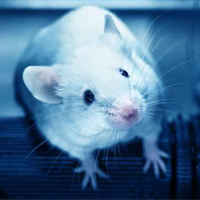Article
Binge Eating Cycle Damages Gut like Junk Food Diet
Author(s):
A binge eating cycle damages the gut like a constant diet of junk food does, according to findings published in the journal Molecular Nutrition and Food Research.

A binge eating cycle damages the gut like a constant diet of junk food does, according to findings published in the journal Molecular Nutrition and Food Research.
Researchers from the University of New South Wales in Australia compared fecal matter of rats to better understand and characterize the cycling between overconsumption of energy rich foods and dieting. Before now, the researchers said, the effects of such consumption on the microbiota were unknown.
Two groups of mice were fed either continuous chow or palatable cafeteria diets into what the researchers termed a “cycled” group, switched between the two diet groups. For example, one group of mice received chow for four days and cafeteria for three days per week over 16 weeks while the other group received only the “junk” or healthy foods for 16 weeks.
The researchers found that the mice in the cycle diet were 18% heavier than those on the healthy diet. In addition, the researchers reported, leptin and insulin levels in the cycled rats were in the middle of the ranges of the mice fed either straight junk or straight healthy foods.
“The findings indicate that intermittent exposure to junk food three days a week is sufficient to extensively shift the gut microbiota towards the pattern seen in obese rats consuming the diet continuously,” study leader Margaret Morris explained in a press release. “A reduction in the diversity of the gut's microbiota and a loss of some of the beneficial biota is clearly not a good thing for health. While these findings are yet to be replicated in humans, those who are strict with their diet during the week may be undoing all their good work by hitting the junk food over the weekend.”
The microbiota from the cycle diet rats were not statistically different from rats fed the junk food diet, the researchers also said. However, both groups’ microbiota differed significantly from the group of mice fed the healthy diet.
The microbiota was also diminished, especially those that metabolized flavonoids, the researchers added — important for aiding weight loss and exerting neuro-protective functions in the brain. The next step in this research would be to test the effects of such diets on the brain and the link between behavior and microbiota.
“The study suggests certain gut microbiota, including Ruminococcus and Blautia, may be promising targets for future therapeutic strategies to treat metabolic disorders,” Morris concluded.




